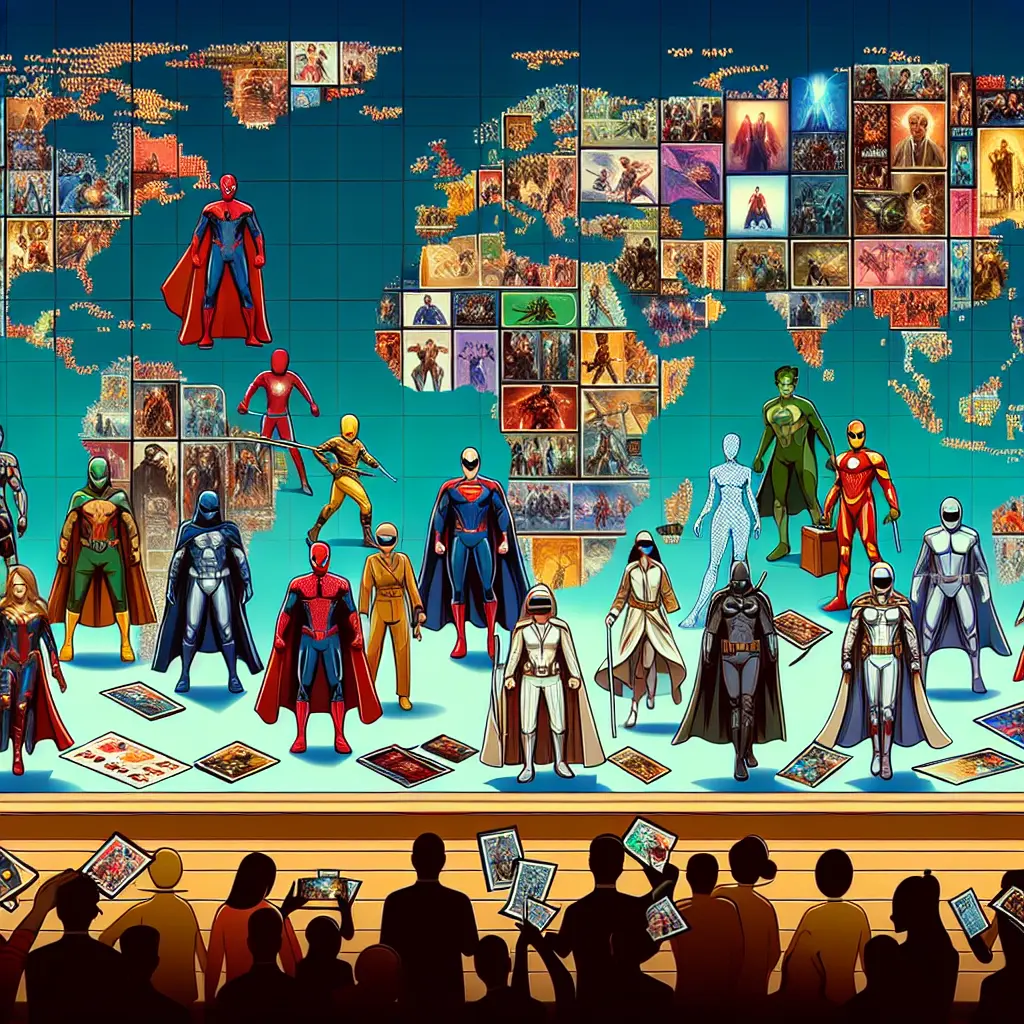
In the vast tapestry of global pop culture, few phenomena have woven as intricate and impactful a pattern as the Marvel Cinematic Universe (MCU). Since its inception with "Iron Man" in 2008, the MCU has not only redefined superhero cinema but also left a significant imprint on global pop culture, societal norms, and the entertainment industry at large.
The Unstoppable Rise of the MCU
The Marvel Cinematic Universe has grown exponentially over the years, becoming a cornerstone of modern cinema. Its influence extends beyond the silver screen, permeating various aspects of media and consumer products. As of 2024, with an ever-expanding universe, the MCU's grip on global audiences continues to strengthen, underscored by its cultural significance and the universal appeal of its narratives and characters.
MCU's Impact on Global Pop Culture and Society
The influence of Marvel movies extends beyond mere entertainment. These films offer a reflection of society, often addressing themes like diversity, ethics, and the human condition, thereby contributing profoundly to the MCU impact on society. Characters like Captain America and Iron Man have become more than just superheroes; they are symbols of virtues and flaws that are universally relatable.
Marvel Entertainment Industry: A Behemoth in Cinema
Marvel's approach to filmmaking has revolutionized the entertainment industry. By interlinking stories across multiple phases and series, Marvel has crafted a unique model that many others strive to emulate. This interconnected storytelling has not only increased the superhero films' popularity but has also led to a sustained interest that keeps audiences coming back for more.
Engaging Global Audiences
The MCU's strategy of diverse character representation and multi-layered narrative arcs has significantly broadened its global audience. Films like "Black Panther" and "Captain Marvel" have been lauded for their progressive portrayals and have played pivotal roles in shaping superhero movie trends, emphasizing inclusivity and representation.
Recent Marvel Updates and Their Implications
Marvel Studios’ president Kevin Feige recently made headlines at Comic-Con 2024, where he discussed numerous upcoming projects and shared insights into the future of the MCU. His appearance on various panels, including one where he amusingly critiqued what employees did with his Lego mini-figure, underscored his pivotal role in the Marvel juggernaut.
Moreover, Feige's discussions revealed exciting developments, such as the integration of X-Men into the MCU and updates on "Spider-Man 4," signaling thrilling prospects for fans and the industry alike. The anticipation around these reveals also highlights the sustained interest and hype surrounding new entries in the MCU.
The Cultural Resonance of Marvel Characters
The influence of Marvel characters on global pop culture is undeniable. Characters like Spider-Man and Wolverine have become iconic, influencing not only other media but also real-world perspectives and ideologies. Their stories of struggle, resilience, and morality offer narratives that resonate universally, illustrating the deep-rooted cultural significance of these characters.
Marvel’s Market Influence: Merchandising and Beyond
The MCU's impact isn't limited to storytelling and cinematic achievements; it also extends into significant economic implications in merchandising. Products like Hasbro’s talking Green Goblin replica helmet showcase how deeply Marvel has penetrated into consumer products, turning character paraphernalia into must-have items for fans worldwide.
The Evolution of Superhero Cinema
"Deadpool & Wolverine" is a prime example of how Marvel continues to push the boundaries of superhero cinema. The film not only explores new depths of self-awareness but also sets new benchmarks for character development and narrative innovation within the superhero genre. This evolution is part of why superhero films remain at the forefront of popular cinema.
Future Trends in Superhero Films
Looking ahead, the trends set by the MCU suggest a continued expansion of superhero narratives, with more complex character arcs and an even greater emphasis on inclusive storytelling. As Dafne Keen’s portrayal in "Deadpool & Wolverine" suggests, newer films will likely delve deeper into character backstories, providing richer, more engaging content for audiences.
Conclusion
From reshaping the entertainment landscape to influencing global cultural norms, the Marvel Cinematic Universe's impact is profound and multifaceted. As it continues to expand and evolve, its role in shaping both the superhero genre and global pop culture remains undeniable. With every new release, Marvel not only entertains but also sparks conversation, influences fashion, and inspires millions.
As we look forward to more innovations and storytelling brilliance from Marvel Studios, one thing remains clear: the MCU is not just a series of films; it is a cultural phenomenon that continues to shape our world in myriad ways.
With great power comes great responsibility, and Marvel has adeptly managed its influence, continuously contributing positively to global pop culture.
— Arthur Barnes